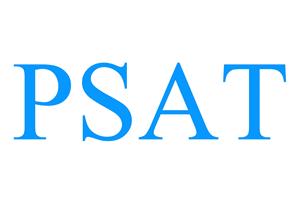School Counseling
Page Navigation
- School District U-46
- Testing and Study Resources
Testing and Study Resources
-
 October 16, 2024
October 16, 2024PSAT NMSQT - all juniors and sophomores
PSAT 8/9 - all freshman
April 15, 2025
ACT - all juniors - requirement for graduation
April 16, 2025
Pre-ACT Secure - all freshmen and sophomoresBartlett High School - Aaron Wichman, aaronwichman@u-46.org, 630.372.4700 x4630
Central School - Megan Xaverius, meganxaverius@u-46.org, 847.888.5000 x4276
Dream Academy - Rafael Martinez Ortiz, rafaelmartinezortiz@u-46.org, 847.888.5000 x7165
Elgin High School - Keleigh Foreman, keleighforeman@u-46.org, 847.888.5100 x5104
Larkin High School - Joan Riedel, joanriedel@u-46.org, 847.888.5200 x5206
South Elgin High School - Tony Venetico, anthonyvenetico@u-46.org, 847.289.3760 x3663
Streamwood High School - Diane O'Connell, dianeoconnell@u-46.org, 630.213.5500 x5507
State Assessments & Study Resources
-
 Schools in School District U-46 will be administering important state assessments to students in 9th, 10th, and 11th grades. You can find a detailed testing schedule here. Below you will find descriptions of each of the exams as well as sites to visit for more information and study resources. Questions should be directed to your child's high school counselor.
Schools in School District U-46 will be administering important state assessments to students in 9th, 10th, and 11th grades. You can find a detailed testing schedule here. Below you will find descriptions of each of the exams as well as sites to visit for more information and study resources. Questions should be directed to your child's high school counselor. All high school students should have an active College Board account. Parents should have an account to view their children’s college-related test scores. Free accounts can be created at www.collegeboard.org, and results are released quickest online. The collegeboard.org website also offers resources for preparing for the tests, applying for scholarships, and sending scores to colleges.
PSAT
-
 School District U-46 will be administering the PSAT/NMSQT for interested sophomores and juniors on Wednesday, October 16, 2024. For more information, check out this video.
School District U-46 will be administering the PSAT/NMSQT for interested sophomores and juniors on Wednesday, October 16, 2024. For more information, check out this video.The PSAT 8/9 and the PSAT 10 are state-required preliminary SAT exams for freshmen (the 8/9) and sophomores (10) that are given to students in the fall at school. They are an assessment of verbal, math, and writing skills with an emphasis on reasoning and logic skills. Scholarship programs use the PSAT 10 exams to find students. Here's info on understanding your PSAT 8/9 scores, and this page explains how your PSAT 10 score reports should be viewed as roadmaps to point you in the direction of what you need to work on to get ready for the SAT, and what you're already doing well.
Those who take the PSAT as a junior might qualify for academic recognition because it serves as the National Merit Scholarship Qualifying Test (NMSQT). Top performing juniors nationally may be eligible for money through National Merit, National Achievement, or National Hispanic Scholarship funds.
Resources
-
Resources for ACT
Resources:
English Practice Questions- Students have 45 minutes to complete 75 questions
Math Practice Questions - Students have 60 minutes to complete 60 questions
Reading Practice Questions - Students have 35 minutes to complete 40 questions
Science Practice Questions - Students have 35 minutes to complete 40 questions
Writing Practice Prompts - Students have 40 minutes to complete one essay prompt
ACT Scores - Understand how the ACT score is calculated by using this resource provided by ACT.
-
Inside the PSAT 8/9
The PSAT 8/9 will measure what students have learned in school and what they need to focus on to get ready for college. Learn more here.
-
Inside the PSAT 10
The PSAT 10 focses on skills and knowledge students are learning every day in high school. Learn more here.
-
Scholarships and Recognition
There are opportunities for academic recognition and scholarships tied to the PSAT. Learn more here.
ACT
-
-
The ACT is the state-required exam that all students take during their junior year and is one tool that is used to measure a student’s knowledge and skills in language arts, reading, science, and mathematics - subjects that are taught every day in high school classes.
This assessment is a requirement to graduate in the state of Illinois. Taking the ACT or SAT separately on a Saturday does not fulfill the state graduation requirements; it must be taken on a school day to meet the state requirement.
While students are required to take the ACT during their junior year, they can elect to take it a second time in the fall of their senior year on a Saturday before the college application deadlines. -
The ACT exam tests knowledge in these areas:
- In the English section, students are measured on their ability to make decisions to revise and edit short texts and essays in different genres.
- In the math section, students demonstrate their knowledge of algebra, geometry, and advanced algebra skills typically acquired in courses up to the beginning of 12th grade.
- In the reading section, students demonstrate their ability to read closely, reason logically about texts using evidence, and integrate information from multiple resources.
- In the science section, students will utilize interpretation, analyzation, evaluation, reasoning and problem-solving skills required in biology, chemistry, earth/space sciences and physics.
- In the writing section, students utilize their writing skills taught in high school English classes and in entry-level college composition courses.
-

